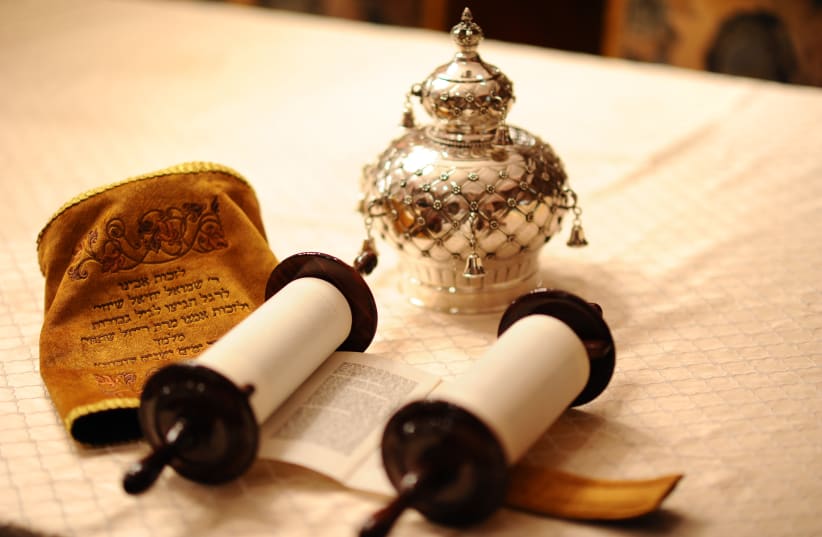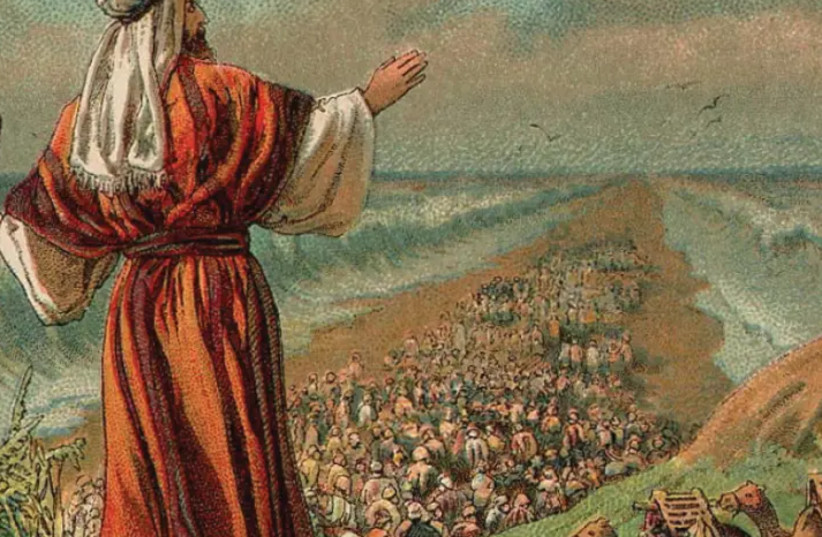“I sing hymns and weave songs because my soul longs for Thee.”
So says “Shir Hakavod.” There are songs of yearning in our tradition, but also songs of hope and trepidation and salvation.
The Israelites face the sea. They were excited, and now it seems they are doomed. The end of joy always bears the stamp of authenticity. Disillusion and disappointment bear the whiff of truth. Of course they could not really be free; the return to slavery is imminent, inevitable.
The sea splits and the future had regained its possibility. They were free.
The Torah reads: “When Israel saw the wondrous power which God wielded against the Egyptians, the people revered the Lord. They had faith in God, and in God’s servant, Moses. Then Moses and the Israelites sang a song to the Lord” (Exodus 14:31, 15:1). Moses, who could not speak, can sing.
In the Midrash, Rabbi Abahu counsels us to take note of the sequence of events. First the Children of Israel come to faith; then, they sing. The Rabbis further teach (Midrash Tanhuma Beshalach 13) that “Az yashir” means they sang so all future generations would since.
Song threads throughout Judaism. The Psalmist is all song: “Awake, harp and lyre! I will rouse the dawn!” (Psalms 108:3). Jewish tradition holds that most of the Psalms were written by King David. The attribution adds poignancy to the poems. They are not the product of someone removed from the rough-and-tumble of life.
In David’s psalms, his very being seeks to become a paean to God. The literal translation of Psalm 109:4 is “I am a prayer.”
In a later age, in the Talmud, Rabbi Meir advises that “song is a necessary complement to sacrifice” (Arachin 11a). The priests in the Temple performed their ritual obligations to the accompaniment of music. In the same discussion the Talmud teaches us that just as atonement for sin is indispensable, so, too, is song.
The most comprehensive example of this in Judaism is the small midrash called Perek Shirah – the chapter of song. Through its several parts, it depicts the entire world singing out to God, beginning with the heavens and the earth, moving on to all types of animals, mammals and birds and fish, then on to plant life, and to all things, animate and inanimate. Creation becomes a song to God.
Study of Talmud takes place in a singsong chant. The Torah in synagogue is not read but chanted. As Rabbi Pinhas of Koretz said: “When one is singing and cannot lift his voice, and another comes and sings as well, another who can lift his voice, then the first will be able to lift his voice as well. That is the secret of the bond between spirit and spirit.”
The great Hebrew poet Yehuda Halevi, imagining the return to Zion, pens an image Naomi Shemer used in her famous song of Jerusalem: “I am a harp for all your songs.”
In the Talmud, in tractate Sanhedrin, we find an unusual deliberation. God considers, but ultimately decides against the possibility of making King Hezekiah the Messiah. Why? Because, the legend relates, throughout his life God has performed various miracles for the king. Yet, unlike King David, Hezekiah did not sing before God. One cannot be the Messiah if one’s soul is fettered, one’s heart locked up – if one’s spirit has no song.
In his poem “Sailing to Byzantium,” Yeats wrote: “Nor is there singing school but studying.... O sages, standing in God’s holy fire... be the singing masters of my soul.” The sages – in the case of the Jewish tradition, the Rabbis – are the singing masters of the soul.
The Psalms read, “I arise at midnight to praise you” (Psalms 119:62). The Talmud wonders how David could be sure of being up at night. They say that each evening David would hang his harp above his bed. In the middle of the night, a breeze would come and vibrate the strings of the harp, which woke the king with its gentle music.
Our tradition hangs a harp above our beds and helps us learn to sing. “Az yashir” – so will we sing forever. ■
The writer is Max Webb senior rabbi of Sinai Temple in Los Angeles and the author of David: The Divided Heart. On Twitter @rabbiwolpe

